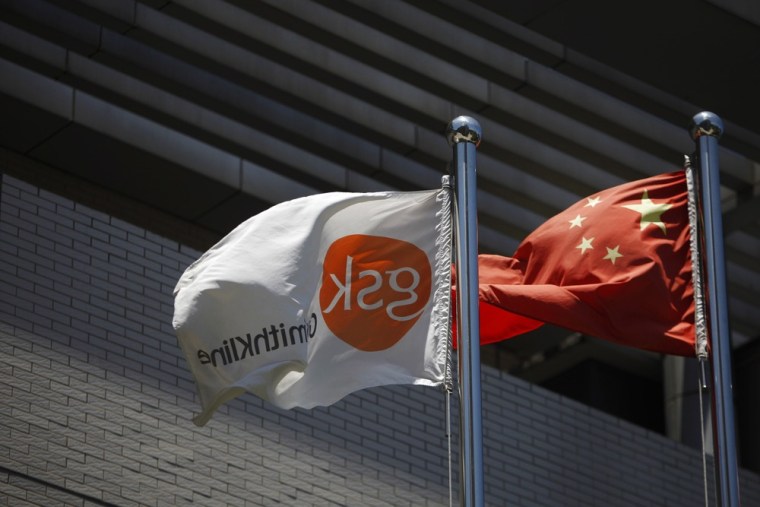Pharmaceutical giant GlaxoSmithKline revealed more bad news Wednesday, disclosing that Beijing officials have barred its head of finance for China from leaving the country amid accusations of a $490 million bribery scandal.
GSK's China finance director Steve Nechelput's foreign travel has been restricted since late June, according the British drug company, which pointed out he is still working and allowed to travel within China.
"It is important to stress that at no time has he been questioned or arrested—nor is he one of the individuals in detention," said a GSK spokesman of the British national Nechelput.
That's small comfort to GSK, which has seen four of its Chinese executives detained because of the alleged bribery scandal, which comes on the heels of the company firing its head of research in development in China over a published article that misrepresented data.
After GSK fired its R&D boss, the company said in June that it had investigated allegations made by an anonymous tipster that GSK employees engaged in bribery and corruption to influence doctors in China to prescribe drugs for years. The company said a four-month probe found no evidence of wrongdoing.
But within weeks, Chinese police accused Glaxo of funneling almost $490 million to 700 travel agencies and other businesses over the years to dole out bribes to officials and doctors in the country.
(Read more: GSK fires China R&D boss)
GSK has said it is "deeply concerned and disappointed by these serious allegations," calling them "shameful," and insisting the company has "zero tolerance for any behavior of this nature."
The company in 2010 had revealed that both the Justice Department and the Securities and Exchange Commission had spoken to GSK as part of a probe into the pharmaceutical business in countries including China.
On Tuesday, Chinese state television aired an interview with GSK's vice president and manager for operations of its China investment company, Liang Hong, who is one of the four execs detained.
Liang in that interview admitted paying bribes to government officials at agencies responsible for approving drug sales and setting prices.
Although that, and GSK's humbled response to the allegations, suggest Chinese authorities may well have strong evidence against the company, observers of China argue that the GSK crackdown may indicate more concern about foreign competition than foreign corruption.
In recent weeks, Chinese officials have announced a series of probes into foreign makers of baby formula, pharmaceuticals and food packaging. On Wednesday, China said it was launching a six-month long crackdown on the pharmaceutical sector, targeting unauthorized drug manufacturers as well as illegal Internet drug sales and fake traditional Chinese medicines.
"We must resolutely punish illegal acts, expose illegal enterprises, recall problematic products," Wu Zhen, deputy commissioner for China's state Food and Drug Administration, said in a statement.
(Watch: Is China playing by the rules?)
"It's too concerted," said Daniel Gouré, vice president of the Lexington Institute, a public policy research organization, about the probes, which have rocked foreign companies in those sectors.
"They definitely want to bolster the domestic side," said Gouré, a national security analyst who also sees the Chinese actions as an effort to divert attention away from still-unresolved scandals by their domestic manufacturers in some of the same sectors, included a notorious tainted baby formula debacle, even as foreign companies rack up big gains in those areas.
"I think the Chinese are being smart, saying 'If you've got a stain on you, then throw mud on someone else,'" said Gouré.
"This is not a coincidence—it can't be," agreed author Gordon Chang, a longtime critic of China who believes the country is headed for financial meltdown because of heavy debt and dramatically slower growth. "This is actually systematic. ... I believe this is all part of a concerted plan of going after foreign companies."
"I think that what China is doing is trying to basically limit the business of foreign companies," he said.
However, a commentary in the Communist party's People's Daily newspaper said: "A crackdown on commercial bribery by multinationals is deeply significant to safeguarding the order of the market economy and protecting an environment of fair competition," Reuters reported Wednesday.
—By CNBC's Dan Mangan. Follow him on Twitter @_DanMangan
